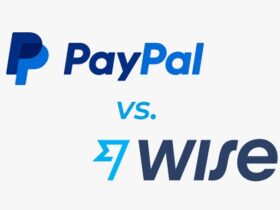If you are looking for the types of Cryptocurrency available then you are at the right place. When it comes to cryptocurrencies, there are many different types to consider. Some of these types act as fiat proxies, while others are purely digital. Tokens are created on an existing blockchain and can have many different uses. They can be used to pay for things, grant access to apps, verify identities, or even track products through supply chains. They can also be non-fungible, are part of Web 3.0 and represent digital assets or digital art. One example is Ether, which acts as a payment token on the Ethereum network.
Stablecoins act as fiat proxies
The technology behind stablecoins is extremely promising, and they have the potential to speed up financial innovations and digital payments. But there are some concerns regarding these coins. For instance, what happens if one of them runs out of reserves? If this happens, the stablecoin holder can demand a real currency from the stablecoin issuer. This is a major concern, because issuers are not regulated like banks, and they can keep their reserves anywhere they wish.
There are two types of stablecoins: fiat backed and non-fiat backed. Fiat-backed stablecoins are backed by fiat currencies, and are generally backed by a central entity. One of these is Tether, which is backed by a fiat currency and has a 1:1 ratio. These are the most common types of stablecoins. In other cases, there are stablecoins backed by commodities, such as oil or real estate. These coins can be used as fiat proxies, and they can even earn interest.
Tokenized commodity tokens
Using tokenized commodity tokens as a form of cryptocurrency would help democratize the market for commodities, increasing the number of consumers and businesses who have access to commodities. It would also allow for more activity in the market, resulting in greater liquidity and depth. The commodity market would also be more open and efficient, with more participants trading around the clock.
Agrotoken, a company in Argentina, has launched a cryptocurrency that tokenizes grains by the ton. It has partnered with Santander to accept agrotokens as collateral for loans. Each agrotoken is backed by one ton of stored grains. In addition to securing loans, farmers can also use the cryptocurrency as a payment method at participating merchants.
Altcoins
Altcoins are a type of digital currency that can be used in a variety of applications. These include software applications for payments, content and games, and even online gambling. They can also represent physical assets like real gold and silver. While Bitcoin is considered the market leader, new altcoins are emerging every day. These new digital currencies tend to have higher risk and reward compared to Bitcoin and are more advanced.
Many people who invest in cryptocurrencies use altcoins as part of their portfolios. They may not have the global recognition of Bitcoin, but they can provide more potential use cases. Altcoins can also carry a higher risk than Bitcoin, but they may increase in price quickly if they catch on.
Infrastructure cryptocurrencies
Infrastructure cryptocurrencies are digital assets that are used to pay for resources on a blockchain. One of the most famous examples is Ethereum. Its users pay for use of the Ethereum network with ETH. In addition to payment, infrastructure cryptocurrencies can also provide tools for on-chain asset management, centralized exchanges, crowdfunding, lending, and other financial services.
Most infrastructures are seen as serious and boring, but they are also out of sight until they break down. These types of cryptocurrencies are a way to make infrastructures visible and accessible to the public. Infrastructures are a part of our society, and we take them for granted until something goes wrong with them.














Leave a Reply